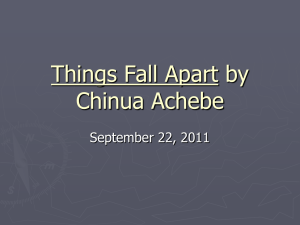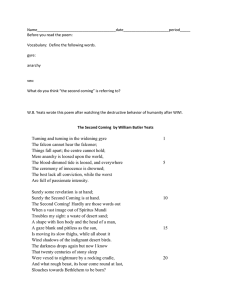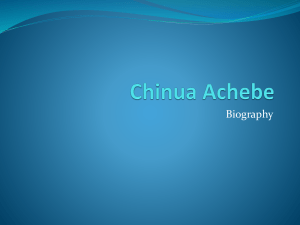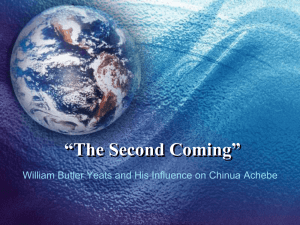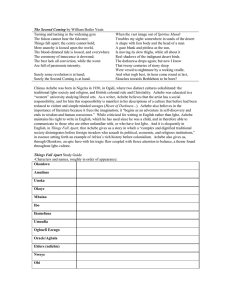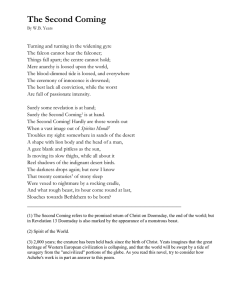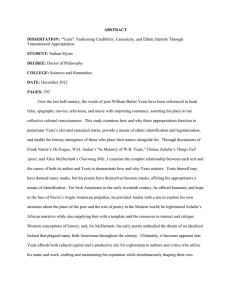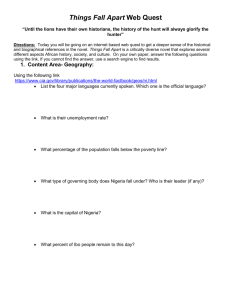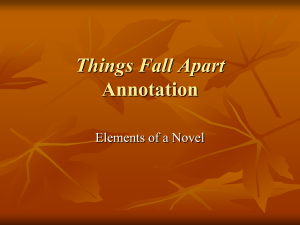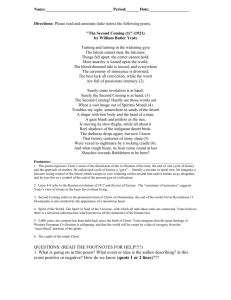ReadingGuide
advertisement
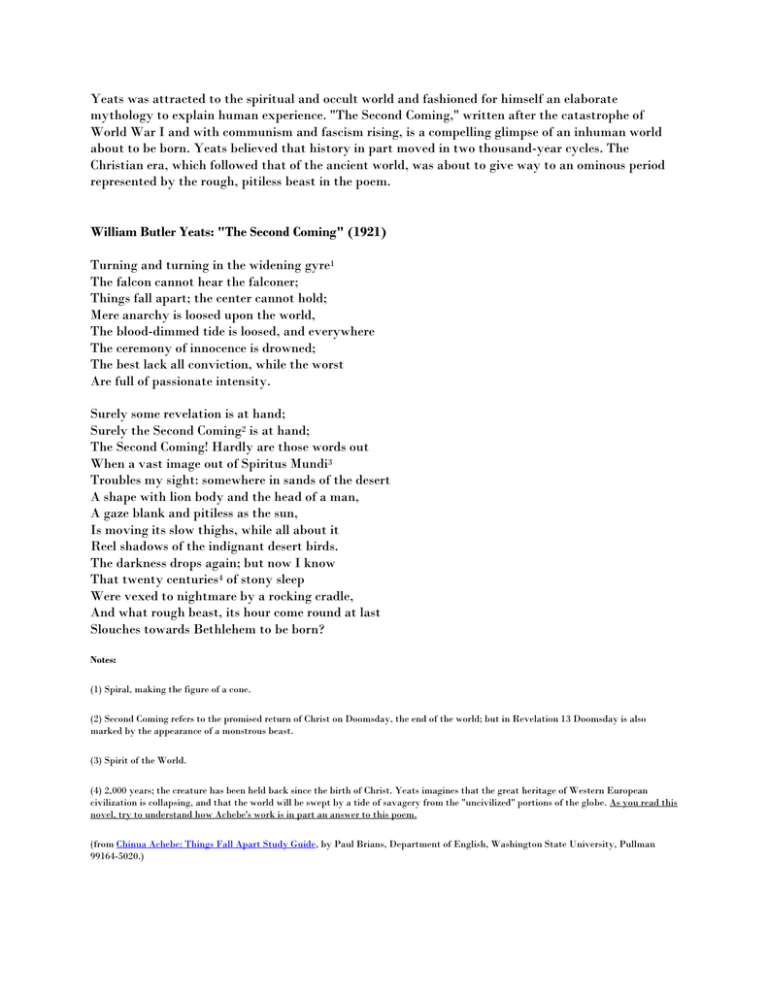
Yeats was attracted to the spiritual and occult world and fashioned for himself an elaborate mythology to explain human experience. "The Second Coming," written after the catastrophe of World War I and with communism and fascism rising, is a compelling glimpse of an inhuman world about to be born. Yeats believed that history in part moved in two thousand-year cycles. The Christian era, which followed that of the ancient world, was about to give way to an ominous period represented by the rough, pitiless beast in the poem. William Butler Yeats: "The Second Coming" (1921) Turning and turning in the widening gyre1 The falcon cannot hear the falconer; Things fall apart; the center cannot hold; Mere anarchy is loosed upon the world, The blood-dimmed tide is loosed, and everywhere The ceremony of innocence is drowned; The best lack all conviction, while the worst Are full of passionate intensity. Surely some revelation is at hand; Surely the Second Coming2 is at hand; The Second Coming! Hardly are those words out When a vast image out of Spiritus Mundi3 Troubles my sight: somewhere in sands of the desert A shape with lion body and the head of a man, A gaze blank and pitiless as the sun, Is moving its slow thighs, while all about it Reel shadows of the indignant desert birds. The darkness drops again; but now I know That twenty centuries4 of stony sleep Were vexed to nightmare by a rocking cradle, And what rough beast, its hour come round at last Slouches towards Bethlehem to be born? Notes: (1) Spiral, making the figure of a cone. (2) Second Coming refers to the promised return of Christ on Doomsday, the end of the world; but in Revelation 13 Doomsday is also marked by the appearance of a monstrous beast. (3) Spirit of the World. (4) 2,000 years; the creature has been held back since the birth of Christ. Yeats imagines that the great heritage of Western European civilization is collapsing, and that the world will be swept by a tide of savagery from the "uncivilized" portions of the globe. As you read this novel, try to understand how Achebe's work is in part an answer to this poem. (from Chinua Achebe: Things Fall Apart Study Guide, by Paul Brians, Department of English, Washington State University, Pullman 99164-5020.) As you read, keep a jot list (!) of. . . what each society values (solidarity, for example, or the art of conversation) How does an individual achieve greatness in his society? Imagery and Language You’ll notice that Achebe weaves Igbo vocabulary into the text. Context suggests the meanings of many such words, but you will find the attached list of Igbo words and definitions helpful, I think. Folktales are an important part of Igbo culture, so think about the role they play as you encounter them. Note how the language of particular characters and groups of characters differs, and start to form some guesses as to why. Look for recurring images. . .like wrestling, among others. Keep a jot list! And be sure to mark references to or suggestions of chi fate or destiny fear change Chukwu (Christianity)
